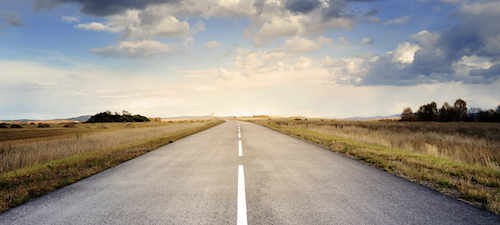Five Travel Trends That Will Change The Way We Explore In 2024
The tourism landscape continues to evolve and 2024 promises a diverse array of new reasons for consumers to travel. We’ve done the heavy lifting of...

When 2020 kicked off, sustainable travel was set to be one of dominant trends in the industry. The 2019 Booking.com Sustainable Travel Report found that 73 percent of global travelers intended to stay at least once in an eco-friendly or green accommodation in the upcoming year. Over half (55%) of global travelers reported being more determined to make sustainable travel choices than they were in previous years.
Of course, a huge portion of travel plans went out the window when the coronavirus pandemic unfolded in the spring. But the move towards eco-friendly travel isn’t going anywhere. In fact, in the post-COVID world, it may be bigger than ever. 
First, let’s get our terms right. The World Tourism Organization defines sustainable travel as “Tourism that takes full account of its current and future economic, social and environmental impacts, addressing the needs of visitors, the industry, the environment and host communities.” In other words, it’s a wholistic approach to travel, tying together ecological, cultural and economic concerns.
Many travelers, especially families, will be searching for trips with a true sense of purpose – often with a sustainable angle built in. Brands and destinations will need to focus on promoting attractions and experiences that offer something beyond the “see-this-do-that” mentality.
Be ready to offer travelers deep dives into a destination’s culture, unforgettable moments and connection to otherwise unavailable adventures. Create educational elements that showcase how the destination is working to preserve and protect the environment – and even how they can be a part of that effort. Develop carbon offsetting programs for travelers to buy into. Show how a vacation can be more than a diversion. It can be a learning experience, a mindful adventure. Travelers will want to connect with local communities and develop a deeper love of the environment in which those communities live. 
After months of being cooped up inside, most people are itching to explore the natural world. Overtourism has been an issue in years past but expect off-the-beaten path outdoor experiences to be more popular than some of the more marquee destinations. Travelers are eager to get out into the world, but in the upcoming months, they’ll also be weary of spots that are full of people. Meanwhile, those previously “overtouristed” spots will have to develop new ways to allow travelers a safe way to visit. This means timed entries and limited occupancies, thereby reducing the often-crushing crowds of the past.
It all dovetails nicely with the sustainable travel trend. Connecting authentically with nature is one of the best ways to truly appreciate it. By offering these types of outdoor experiences, destinations can offer travelers something that they’ll remember for years to come — and perhaps even put into practice in their day-to-day lives.
Public health is top-of-mind for us now. And it will continue to be an ever-present concern for travelers, even when the threat of the coronavirus diminishes. Wherever they go, travelers will expect – and demand – a high degree of health precautions. As destinations and hotels begin to implement these necessary changes, there’s an opportunity to bring together cleanliness and sustainability.
Ensure that new air filtration systems use green energy. Incorporate eco-friendly elements in your day-to-day operations. Find organic and natural cleaning products. Use glass bottles instead of plastic (glass is both much easier to sterilize and much less harmful to the environment). The long-term payoffs will be worth the short-term investment. The clean destination should also be a green destination.  Image by Jess Foami from Pixabay
Image by Jess Foami from Pixabay
The rallying cry during the pandemic has been “We’re all in this together.” And that expression of unity could be easily applied to environmental concerns. As the industry slowly but surely begins to rebuild, it’s the responsibility of all players (DMOs, hotels and beyond) to take travel in a more sustainable direction.
There’s certainly a lot of talk about a much-hoped-for “return to normal” these days. But in this case, a return to normal would be a mistake. A brighter future for travel is also a genuinely sustainable future.

The tourism landscape continues to evolve and 2024 promises a diverse array of new reasons for consumers to travel. We’ve done the heavy lifting of...

Across the globe, the travel industry is still reeling from the effects of the pandemic of 2020. According to the World Tourism Council, the tourism...

The travel world came to a shuddering halt in 2020. But make no mistake, travel will be back – perhaps sooner than most think. In fact, people are...